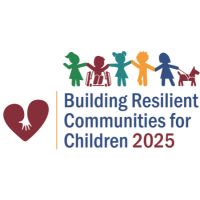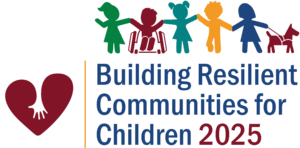The highly anticipated Building Resilient Communities for Children Conference will be held virtually on June 23-24, 2025, bringing together experts, practitioners, and advocates dedicated to fostering resilience in children and communities. ATN is thrilled to announce an outstanding lineup of plenary speakers who will share their insights, research, and experiences to inspire and empower attendees.
Robyn Gobbel, MSW – Changing How We See People Changes People
Jessica Sinarski, LCMHC – Capturing the Students’ Hearts: Even the Ones Who Push Your Buttons
Perhaps like many educators you understand the power of relationship for bringing out the best in your students. But how do you reach the kids who seem closed off, resistant, or flat-out defiant? Let’s put strengths-based science into practice to break down barriers. Participants will walk away with concrete tools to build authentic connections, even with the toughest-to-reach kids. You are not a failure. “That kid” is not a lost cause. There’s hope.ry.
Keith Cruise, PhD – Trauma-Informed Care in Juvenile Justice: Challenges and Opportunities
Trauma-informed care is frequently discussed as a best practice in meeting the needs of adolescents with justice system involvement and is offered as an organizing framework for service delivery that presents both challenges and opportunities. While trauma needs are high among many adolescents with justice system involvement, the benefits of trauma-specific treatments in supporting delinquency risk reduction are not well understood. Paradoxically, some adolescents who are identified as engaging in very serious aggression/violence have also experienced the highest levels of lifetime traumatic event exposures, associated trauma reactions, and mental health problems that warrant careful attention through screening, assessment, and intervention access. Using a trauma lens – and careful attention to the developmental impact of trauma – professionals working with youth and families can develop a richer understanding of complex needs, outline potential paths for recovery, and support a collaborative approach to relationship building that can shift an adolescent’s trajectory from reactivity to recovery.
Becky Hass – Creating Trauma-Informed Healing Communities
Some of the greatest challenges faced by every city in our nation, have their roots in a common problem–the childhood trauma experienced by the individuals who are living there. Upon recognizing the connection between trauma and poor physical and social outcomes, communities have a responsibility to develop a plan to raise awareness about trauma by educating local partnerships and service providers on what trauma is and how to systematically identify it. This presentation provides compelling reasons why a community needs to understand trauma and how by using the practical steps of “Advocate, Educate, and Collaborate” you can create more resilient organizations and communities. This presentation includes lessons learned from Becky’s pioneering work in NE TN as well as how she is supporting growing healthy communities now on a national level.
Jon Baylin, PhD – Helping Kids Recover from Developmental Trauma: A Brain-based Approach
Dr. Baylin will present his current Triple Trouble model of how extreme early life stress impacts brain development and then will present an integrative approach to helping children recover from having to dedicate their brain development to chronic mistrust and self defense. Dr. Baylin highlights 3 brain systems affected by early life stress to help mental health professionals understand the challenges involved in helping children literally change their brains and their minds about themselves, the trustworthiness of others, and hope for the future.
Dr. Baylin will present his current Triple Trouble model of how extreme early life stress impacts brain development and then will present an integrative approach to helping children recover from having to dedicate their brain development to chronic mistrust and self defense. Dr. Baylin highlights 3 brain systems affected by early life stress to help mental health professionals understand the challenges involved in helping children literally change their brains and their minds about themselves, the trustworthiness of others, and hope for the future.
Join Us!
This year’s virtual conference promises to be an enriching experience for professionals, caregivers, and community members working toward the well-being of children. In addition to the plenary sessions, attendees will have opportunities to participate in interactive workshops, networking sessions, and collaborative discussions.
We look forward to welcoming you to this transformative online event!
Learn more about the conference and registration here.


